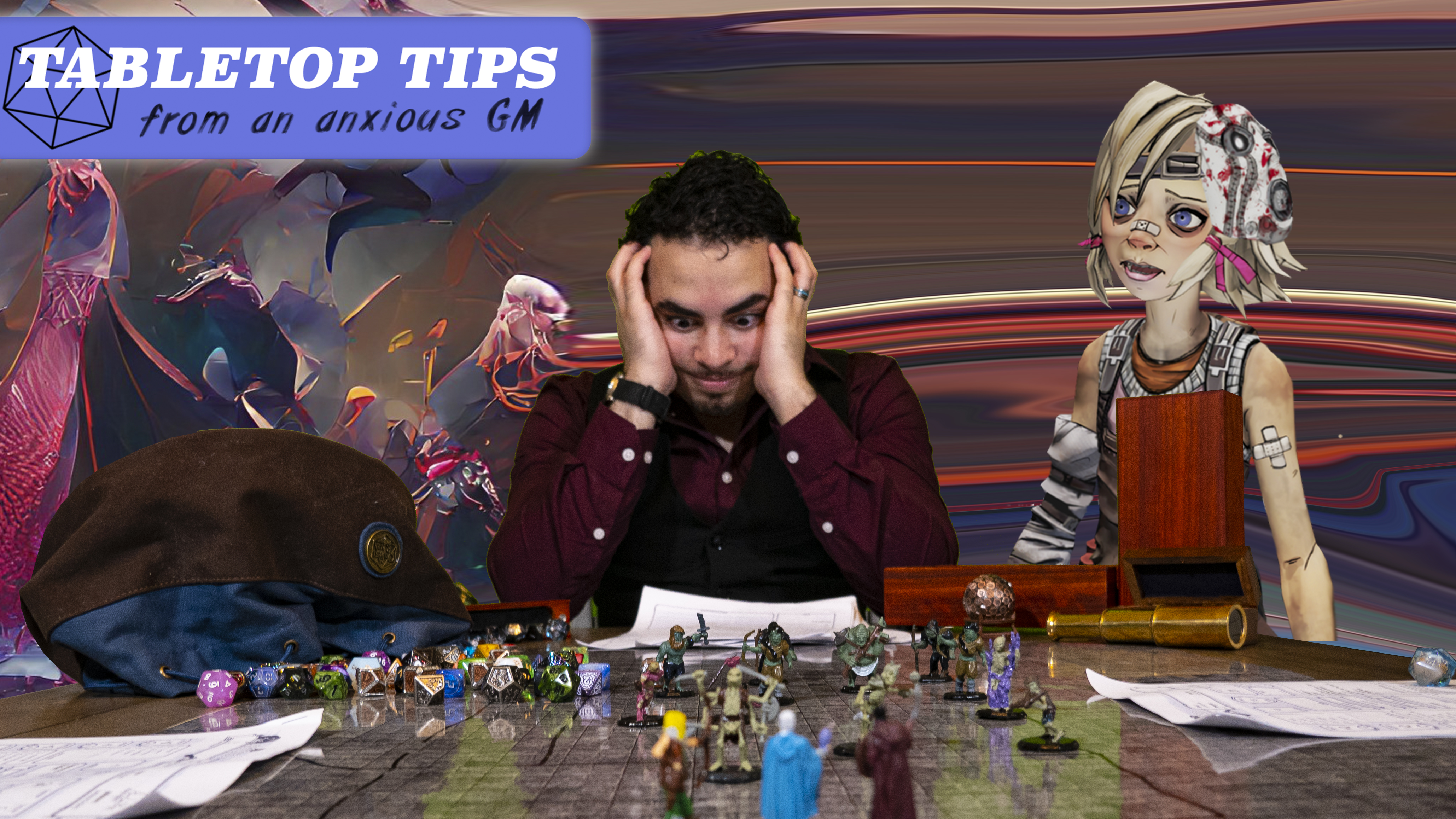Tiny Tina’s Wonderlands writer asks how we manage expectations for our D&D home games vs. actual play shows
What to take away from live-play D&D vs. real life D&D

Sign up to receive The Snapshot, a free special dispatch from Laptop Mag, in your inbox.
You are now subscribed
Your newsletter sign-up was successful
I love watching other people play D&D — it’s incredibly engaging and can draw me in for hours, but how does that compare to actually playing D&D? It can be similar, but people need to manage their expectations. A new GM isn’t going to play like Matthew Mercer or Brennan Lee Mulligan, and they shouldn’t have to. Everyone has their own GMing style and everyone has their own play style that they need to sculpt when jumping into roleplaying games. As someone who struggles with anxiety and depression — a combo that is less than ideal for a journalist or a game master juggling seven different players in a six-hour Dungeons & Dragons game — I know it’s tough to break into a space with so many talented roleplayers.
I had the opportunity to interview Sam Winkler (lead writer on Tiny Tina’s Wonderlands), and of course we talked about D&D and TTRPGs. In this week’s column of Tabletop tips from an anxious GM (all of which can be found on our DND tips hub), I’ll be answering a question from Sam Winkler himself.
“I think that there are certain expectations that people are taking from performance D&D and trying to weave that into their own personal games. And when you are telling a serialized story for a listener or a viewer, that's a very different type of gameplay than it is when you are just playing for the friends around the table. I don't know the solution for that, but I would love to know how people balance out the D&D that they take in for entertainment versus the D&D that they play.”
Anyone who is introduced to live-play D&D or TTRPGs has struggled with this issue before. Live-play D&D is not the same as D&D in real life, but that doesn’t mean that we can’t learn from it. Let me explain.
TL;DR
Communicate with your players and GM about your level of experience and what kind of expectations you have for the game. What to learn from live-play — it’s a great example for roleplay and storytelling. What not to learn from live-play — it’s not the standard, and you shouldn’t expect it to be. You’re not playing with professionals, you’re playing with friends.
How to learn from live-play D&D without warping your expectations of real D&D — an in-depth look

Communicate! I’ll stop saying it when I die. It’s vital that both the players and GM make their expectations clear from day one. There are many different themes and genres of play that could be radically different from what you’re looking for. There’s the generic fantasy adventuring party, but there are hundreds of variations of that. Are you looking for a comical adventure filled with wacky characters? Or are you looking for a serious game of political intrigue?
When you decide what type of game you’re interested in playing, you need to curb your expectations if you think you’re going to experience the same thing as people on live-play D&D. Talk to your GM or players and see how much experience they have roleplaying. It’s unlikely that they are paid professionals like the ones you see on stream. Be upfront with the people you’re playing with and you are setting everyone up to have a better time.
Sign up to receive The Snapshot, a free special dispatch from Laptop Mag, in your inbox.

What to learn from live-play. I love watching live-play D&D and TTRPGs. I’ve learned a lot from other GMs and players about how to embody certain styles of play that never would have occurred to me. Critical Role’s Matthew Mercer taught me how to bring a story to life in front of my player’s eyes and have them consider the consequences of their choices. Dimension 20’s Brennan Lee Mulligan taught me how to lighten up on rules and embrace my player’s chaotic attempts to bend the narrative.
This is crucial as D&D’s notoriously crunchy rules can be daunting for players and GMs alike. While some boundaries are important, crafting a compelling story together should take precedence over rules minutia (unless of course that’s what your group loves). Live-play D&D changed how I play for the better because I recognized what I could change about myself in order to better roleplay and create more interesting content. However, it’s important to recognize what helps and what doesn’t.

What not to learn from live-play. These are paid professionals, a large number of whom are professional voice actors, and they’re putting on a show for viewers. This is designed for entertainment. Yes, it’s improv, but the choices that these players make are based on the fact that someone is watching them. It would be boring as hell if everyone you watched played conservatively. They make risky decisions because it’ll create consequences and circumstances that amp up the fun.
You can’t expect your players or GM to have that level of play, every individual player and group is different. At any table you watch, those players trust each other and have already made their boundaries known off-screen. Don’t try to embody their risky behavior or flirtatious attitudes if it’s unwelcome at your table. No one should be expected to GM like Matthew Mercer, and no one should be expected to roleplay like Liam O'Brien. You need to talk about expectations and limits with your players or GM. People play to have fun, not put on a show.

I hope this helps new players and GMs out there who are just jumping into TTRPGs. If you liked this column and want to see it continue, you can send me your own questions concerning mechanical, narrative, or social issues in the tabletop gaming space. You can email me at rami.tabari@futurenet.com or find me on Twitter.

Rami Tabari is the Reviews Editor for Laptop Mag. He reviews every shape and form of a laptop as well as all sorts of cool tech. You can find him sitting at his desk surrounded by a hoarder's dream of laptops, and when he navigates his way out to civilization, you can catch him watching really bad anime or playing some kind of painfully difficult game. He’s the best at every game and he just doesn’t lose. That’s why you’ll occasionally catch his byline attached to the latest Souls-like challenge.
